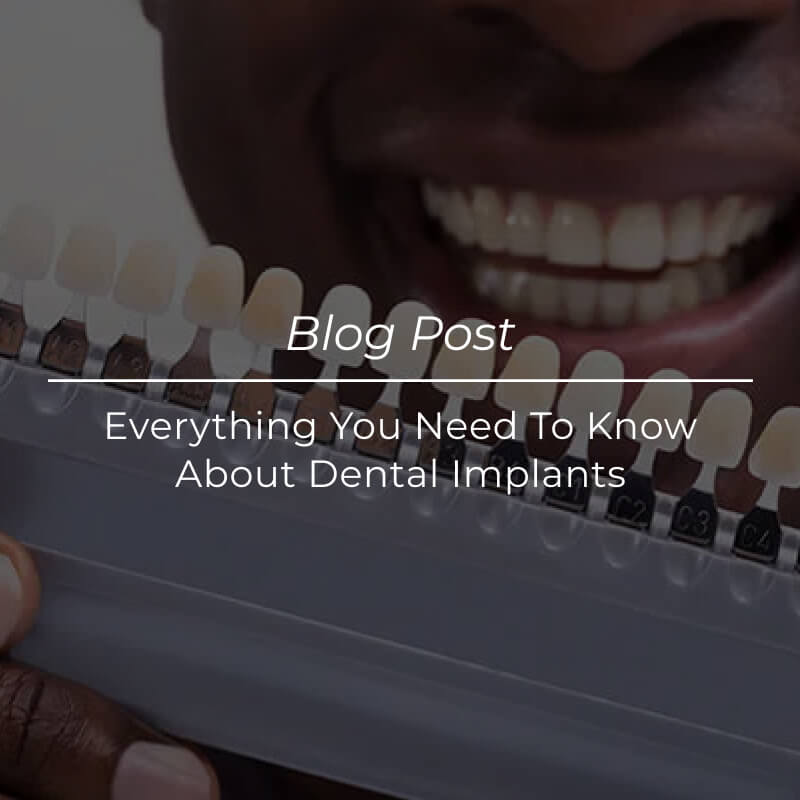-
Mon- Sat 08:00-18:00
-
Call Us Now 1300 99 1300

A dental implant is nothing but the replacement of a missing tooth. In this treatment, a piece of metal that looks like a screw is placed into the jaw of the patient to form the root of the tooth. As time passes, the bone around the implant grows to provide support to it. Later on, an artificial tooth also known as a crown is attached to the metal to stand in place of the missing tooth. A crown is specially made to look just like the natural teeth of the patient.
Dental implants are usually made of titanium or titanium alloys. It is believed that titanium is the only material that the human body responds well to. The jawbone easily accepts this material as a part of the body.
A dental implant may be necessary if you have one or more missing teeth, and it’s a viable option for tooth replacement. However, only some are suitable candidates for a dental implant. Here are some crucial factors your dentist or dental practitioner will need to evaluate before recommending a dental implant:
Dental implants offer a great way to fill in the gaps created by your missing teeth. They offer multiple benefits which are as follows:

There are mainly two types of implants that are considered to be safe, Endosteal implants and Subperiosteal implants.
Endosteal implants are the most common type of dental implants used for patients with no prohibitive conditions. This means that if you are healthy and there are no complications with your case, the dentist will suggest you to opt for endosteal implants. These implants usually have screw-like shape. Some are shaped like cylinders or blades as well. They are directly implanted into the jawbone after giving local anaesthesia to the area where they are placed.
Subperiosteal implants are usually suggested to patients who have weaker jawbones or a shallow jawbone that cannot support endosteal implants. These are titanium frames fitted over the jawbone and right below the gum tissues.
A dental implant treatment involves various stages. The entire procedure may take around 3 to 9 months, depending on the complexity of the case.
First comes the treatment and assessment planning stage. The dentist will ask the patient to get x-rays done for his or her mouth to make it easy to analyse the condition of the area where an implant is needed. Once the dentist has created a treatment plan for you, he or she will discuss this with you. The step by step procedure, the timeframe, and everything regarding the treatment will be shared with you at the very beginning.
If your jawbone is too thin or soft to hold the implant in place, the dentist may suggest bone grafting. The dentist will take a section of your bone from any other part of your body and graft it onto your jawbone. Sometimes dentists prefer using a special bone grafting material instead of removing a bone from the body of the patient. After the grafting is done, the dentist will wait for a few months before moving on to the next step. This is mainly because the bone graft is required to bond to your existing jawbone and be ready for an implant.
The next step involves the placement of the implant. This is a minor surgical procedure that is performed under local anaesthesia. An implant is a metal screw that is attached to your bone to act as an anchor for the entire prosthesis. After the implant is placed into your bone, the site is left alone for up to 7 months for recovery.
Once the implants have fused with your jawbone, the site is ready for the next step. The next step involves the placing of the temporary crown, also known as a healing collar. A healing collar is a round piece of metal that prevents the gums from coming in contact with the implants. This collar is placed on the implant head to guide the gum tissues to heal in the right manner. The collar is kept for a period of 10 to 14 days before moving on to the next step.
After all this, it is time to place the abutment. An abutment is a part that needs to be screwed into the implant to provide support to the crown. After the abutment is placed, there is a need to take another impression of the abutment for every tooth. After this, you will still have a temporary crown, so your tissues will continue to heal and form around the artificial tooth. You will have to wear the temporary crown for a period of 4 to 6 weeks. By then your permanent crown will be ready too.
The final step involves the placement of the permanent crown. A permanent crown that looks just like your natural tooth is screwed to the abutment or cemented in that area. Cementing the crown is a better option than getting it screwed as there are chances of the screw hole being visible from some angles.
Usually, there are 2 types of crowns that you can choose from, removable and fixed. Removable crowns can be removed for cleaning on a daily basis, whereas fixed crowns cannot be removed, just like your natural teeth.

Just like any other dental surgery, there are some risks involved with dental implants too. Though the rate of dental implant failure is very small, there are still some chances of the treatment failing. This can mainly happen due to infections and clenching or grinding of the teeth. Also, at times, when the tooth is being replaced on the lower jaw, a nerve running under the lower jaw gets damaged due to the placement of the implant. This may lead to numbness that may last for a while till the nerve heals. Sometimes, the nerve does not heal at all, thus adding to the complication.
Another complication that may arise due to implants is an infection that may occur due to the drilling impacting the sinuses above the upper teeth. To avoid this, the dentist should take an x-ray before the surgery to know where precisely the sinuses or nerves are located.
Dental implants can last for a lifetime if proper care is taken. As dental implants are not vulnerable to dental diseases like natural teeth, they can stay intact for years and years. However, it is important for them to receive proper oral care. They also require regular professional check-ups and cleanings for maintenance.
The cost of dental implants usually depends on various factors including the popularity of your dentist, the location of the clinic, the type of implant used, etc. However, as dental implants are considered to be an almost permanent solution for replacing your missing teeth, they are costlier when compared to other teeth replacement options like dentures. You can expect the cost for a dental implant to be anywhere in between $3000 to $7000. Also, the price may vary if additional treatments like bone grafting or sinus lift are required.
You need to look after your dental implants just the way you do for your natural teeth. It is important to keep your dental implants clean and plaque-free. To do so, you need to brush and floss two times in a day. Cleaning them after meals is a good habit that will help in maintaining their condition for the long term.
To decrease the amount of bacteria present in your mouth, your dentist may suggest an antimicrobial mouth rinse that helps in killing germs and provides protection against plaque.
It is also important to choose your toothbrush wisely. You can opt for an inter-dental toothbrush that is made specially to clean around the bridges, braces, and wide spaces.
Dental implants offer a great way of ensuring that the overall health of your teeth is maintained. This is mainly because implants provide a foundation in your jawbone to support your dental prosthesis without disturbing the other healthy teeth present in your mouth. They are aesthetically appealing when compared to bridges and dentures. Also, as they stay put just like your real teeth, you don’t feel any discomfort at any time. There are high chances that you may just forget that you have an artificial tooth in your mouth. Explore full mouth dental implant costs in Australia and discover free implant options for seniors at Care Family Dental.
If you are considering alternatives to a dental implant, two common options are available:
To figure out what’s right for you, it’s best to talk to your dentist or dental expert. They’ll examine your oral health, check how many teeth are missing, and understand your expectations from your dental treatment. Based on this, they will suggest you the proper treatment to replace your missing teeth.
If you want to know more about dental implants or book an appointment, contact us online or call 1300 99 1300 today. Care Family Dental Toorak will be happy to help you!








